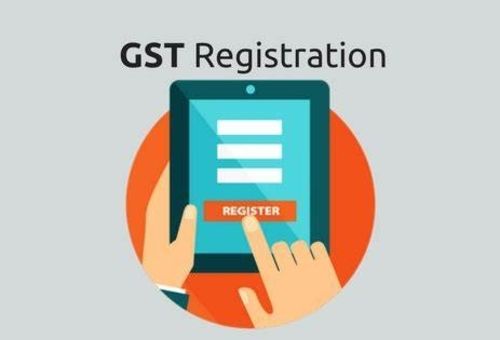From Beginning to Complete: The Ultimate Roadmap to GST Enrollment for Organizations Seeking Financial Stability
Browsing the complexities of Product and Provider Tax (GST) registration is a crucial action for businesses making every effort for financial stability. From comprehending the basic concepts of GST to conforming with post-registration standards, the procedure can appear intimidating at initial glance. Damaging down the roadmap right into manageable steps can enhance the enrollment journey for services looking to enhance their monetary standing. Let's explore the essential components that comprise this ultimate roadmap and discover just how each phase adds to laying a solid foundation for financial success.
Comprehending GST Fundamentals
Digging right into the basic principles of Product and Solutions Tax Obligation (GST) is vital for gaining a thorough understanding of its implications on companies and the economic situation. Input Tax Obligation Credit Rating (ITC) is a considerable attribute of GST, allowing companies to assert credit history for tax obligations paid on inputs, decreasing the total tax worry. Understanding the fundamentals of GST is critical for organizations to comply with tax regulations, handle their funds efficiently, and contribute to the country's economic growth by taking part in a transparent tax system.
Eligibility Standards for Enrollment
To sign up for GST, organizations need to fulfill certain eligibility requirements established by the federal government. The main qualification demand is that any kind of organization associated with the supply of items or services with a yearly accumulation turnover above the threshold restriction established by the authorities must sign up for GST. Since the existing guidelines, the threshold limit for GST registration is an annual aggregate turn over of 40 lakhs for organizations operating within a state, with the exception of unique group states where the limitation is 20 lakhs. Furthermore, specific businesses are called for to sign up for GST regardless of their turn over, such as interstate distributors, casual taxable individuals, and businesses responsible to pay tax obligation under the reverse charge system. It is essential for services to thoroughly assess their turn over and transaction kinds to determine their GST enrollment commitments accurately. Failure to sign up for GST when eligible can bring about fines and legal effects, making it necessary for companies to follow the defined qualification criteria.
Documents Required for Registration
Having actually met the eligibility standards for GST registration, businesses have to now guarantee they have the requisite documents in location to proceed with the enrollment procedure efficiently. The records required for GST enrollment commonly consist of click here to find out more proof of service constitution, such as partnership act, registration certification, or unification certification for different types of companies. Additionally, services need to give documents establishing the primary place of organization, such as a rental contract or electrical power costs.
Step-by-Step Registration Refine
Starting the GST registration process includes a collection of structured actions to ensure a compliant and smooth enrollment for services. The initial step is to visit the GST website and submit the enrollment kind with accurate details of the business entity. Following this, the applicant obtains a Short-lived Reference Number (TRN) which is made use of to resume the application procedure if it's not completed in one go.
Next, all called for documents based on the checklist offered by the GST portal requirement to be published. These records normally include proof of company enrollment, address and identification proofs of promoters, monetary declarations, and company entity's frying pan card.

Post-Registration Conformity Guidelines

Conclusion
Finally, services seeking financial stability must understand the basics of GST, meet eligibility criteria, gather necessary documents, adhere to the detailed registration process, and follow post-registration standards - Best GST registration services in Singapore. By sticking to these steps, services can make certain conformity with tax obligation regulations and preserve economic security in the future
Additionally, certain businesses are required description to register for GST regardless of their turnover, such as interstate vendors, informal taxed persons, and organizations responsible to read more pay tax obligation under the reverse cost mechanism.Having actually met the qualification criteria for GST enrollment, companies need to currently ensure they have the requisite papers in location to continue with the registration process effectively. The documents required for GST enrollment normally include evidence of organization constitution, such as partnership act, registration certificate, or incorporation certification for various types of companies. Additionally, businesses need to supply documents developing the major area of service, such as a rental agreement or electricity costs.Commencing the GST enrollment procedure involves a series of organized actions to make sure a seamless and certified enrollment for companies.